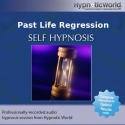The I Ching, the ancient Chinese book of wisdom, is sometimes called the Book of Changes. It dates back to about 3000 BC, and is traditionally attributed to Fu Xi, who discovered the markings of the trigram on the back of a turtle in the river Lo. Those same markings form the basis of Chinese numerology, the magical Lo Shu square. The philosophy behind the I Ching is based on the balance of opposites (yin and yang), the concept of change as an ongoing process and the acceptance of change as an inevitable process. While the philosophy and mathematical principles drawn from the I Ching form the underpinnings of Tao beliefs, feng shui, Chinese astrology and Chinese numerology, the I Ching is most familiar to Westerners as a method of divination.
Throughout history, man has tried to find meaning in the events around him, seeking guidance from supernatural and divine sources. Divination, as opposed to fortune-telling, implies that search for guidance. The concern in divination is less in prophesying what the future will bring and more on seeking out the right and righteous path. Thus, a method of fortune-teller may tell you that a tall dark stranger will bring many changes into your life. A diviner will read signs and symbols and suggest that you open yourself to changes and new ideas from others.
If a person is seeking clear cut answers to straight questions, divination will seldom provide them. Like the Delphic oracle of Greek history, the answers will often raise more questions than answers. Throughout history, people have used nearly anything imaginable as divinatory tools. The most well known are runes, cards, stones, coins and books. The main requirements of divination are a set of symbols and a random method of discovering the symbols to be read. The method may be as simple as stirring mud with a stick or as complex as laying out multiple rows and columns of cards or crystals.
The I Ching, the Chinese book of wisdom, was a natural candidate to use for divination.
The I Ching’s basic building blocks are two symbols – one solid (yang) and one broken (yin). The lines are arranged into trigrams – sets of three lines. Using the two symbols, there are eight possible combinations – the eight trigrams. Each trigram corresponds to an element and a number. The trigrams are further combined to form 64 hexagrams. Each of the hexagrams has a specific meaning, with interpretations and annotations that have been added by many of the great philosophers and thinkers throughout history.
The concept of change is central to the I Ching, so it’s not surprising that changing lines are incorporated into the I Ching. The lines are yin and yang, but the way that they are determined also determines if they are “old (changing) yang”, “old (stable) yin”, “young (stable) yang” or “young (changing) yang”. In Chinese philosophy, everything is in a constant process of moving toward its opposite. Thus, yin is expanding toward yang and yang is contracting toward yin. Old yin is close to changing to yang, and old yang is reversing itself to young yin. When a line is changing, it should be reversed within its hexagram to create another hexagram, and that one read alongside the original. If there are many changing lines in the hexagram, the result can be a very complex and deep reading.
The traditional method of casting the hexagrams uses a bundle of fifty yarrow stalks or sticks. It is a complex and involved ritual that involves separating and counting the yarrow stalks into groups, assigning numbers to the groups and then creating hexagrams from those numbers. The entire process of casting the hexagram can take an hour or more.
A more modern method uses coins with a defined head and tails. The querent casts three coins six times to determine the six lines of the hexagram, then interprets the hexagram according to a chart (or to memorized meanings of the hexagrams).
If you don’t have a book of I Ching, you can find charts of the hexagrams, along with their meanings, in many different places on the internet.
What's Related on eMystica.com: |
Hypnosis CD: Past Life Regression

Journey to a past life with this Hypnotic World self hypnosis CD. Details...
In stock. Buy Now
Daily Horoscope
Fun, informative and free! View your horoscope for today - simply select your star sign below:
| Free Interactive Readings... | ||
|
3-Card Tarot Readings in the
Tarot Center
Daily Horoscopes in Astrology I-Ching Reading in I-Ching
Discover your Life Number in Numerology |
|
|